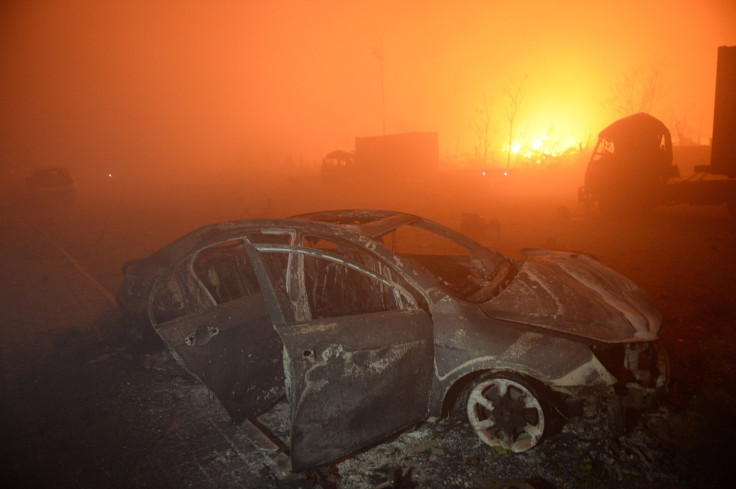Tianjin Explosion Update: Death Toll Climbs Over 100, Chinese President Urges Nation To Learn 'Profound Lessons'

The death toll in Tianjin has reached 104 Saturday, following chemical explosions earlier this week in the Chinese city. President Xi Jinping said the nation needed to learn "profound lessons" about safety regulations from the bloody accident, in a statement Thursday published by the official Chinese news agency, Xinhua.
The two blasts occurred in Tianjin Wednesday in a warehouse storing dangerous chemicals. Local authorities have not yet determined the cause of the explosions that rocked the city, killing more than 100 people and wounding several hundred more.
At least 772 people have been hospitalized, 58 of whom were in critical condition Xinhua News reported Saturday.
Exploding with a force equivalent to three and 21 tons of TNT respectively, the two blasts that devastated Tianjin have caused federal officials to investigate regulations for chemical storage safety. Xi demanded that the nation put "people's interest first" to prevent any similar events in the future.
Residents within a 3 kilometer, or 1.9 mile, radius were ordered to evacuate Saturday after the deadly chemical sodium cyanide was found near the site of the blast. A wind shift caused the sodium cyanide to drift east, forcing the evacuation of residents in that area. Sodium cyanide is fatal and causes death rapidly in humans by interfering with oxygen intake.
#UPDATE: Death toll in China explosions rises to 104. http://t.co/WdYFIbO92t pic.twitter.com/4ataLSPlGY
— NBC Bay Area (@nbcbayarea) August 15, 2015The chemicals being stored at the warehouse would have been stable on their own though highly flammable in the presence of heat, chemical risk expert David Leggett told NPR Friday. "[I]n the presence of a fire - a very big fire, as we believe there was - the first thing that probably happens is that the containers of the calcium carbide start to fail," Legett said. This chemical, when mixed with water causes a "very, very flammable and highly explosive gas called acetylene," according to Legett.
Several authorities have said that poor documentation in the warehouse may have led to storing different incompatible chemicals near each other.
© Copyright IBTimes 2025. All rights reserved.






















